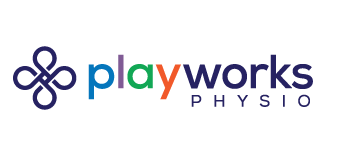Discover the Power of Rehabilitation Assistants at PlayWorks Physio!
At PlayWorks Physio, we take pride in offering comprehensive care to our young patients. In our pursuit of excellence, our dedicated Rehabilitation Assistants (RAs) play a pivotal role in ensuring that every child receives the highest quality of care.
The PlayWorks Experience
At PlayWorks Physio, we take pride in offering a holistic approach to pediatric physiotherapy. Our Rehabilitation Assistants contribute significantly to this approach in several ways:
- 1:1 Personalized Care: Our RAs provide individualized, one-on-one sessions, guaranteeing that your child’s unique needs are met with precision and dedication.
- Bringing Fun into Therapy: With creativity and enthusiasm, our RAs implement the physiotherapist’s plan in ways that actively engage children, ensuring that therapy is a delightful and enjoyable experience.
- Flexible Scheduling: Busy family life is a reality. That’s why we offer flexible scheduling, making it easier to find a convenient therapy time.
- Community Outreach: Recognizing that therapy doesn’t always necessitate a clinic visit, our RAs work with children in the familiar and comfortable environment of their own homes and communities.
- Pool Therapy Expertise: For those who find aquatic therapy beneficial, our RAs play a pivotal role. They assist physiotherapists during pool therapy sessions, helping children build water confidence, strength, and work toward their physiotherapy goals.
- Biking and Playground Skills: We go beyond traditional therapy by supporting children in acquiring vital life skills like biking and mastering the playground. This promotes independence and self-assurance.
How to Get Started
If you believe your child could benefit from the support of a Rehabilitation Assistant, and are already a patient, we encourage you to discuss this option with your physiotherapist. They will be able to guide you through the process and help you decide if working with an RA is the right choice for your child’s unique needs. If you are not a current patient, please book an Initial Assessment with one of our physiotherapists, prior to working with a Rehab Assistant.
Once you’ve decided to work with a Rehabilitation Assistant, we’ll be delighted to assist you in scheduling your sessions. Our team will ensure that you and your child have a personalized and rewarding experience during your time with PlayWorks Physio.
